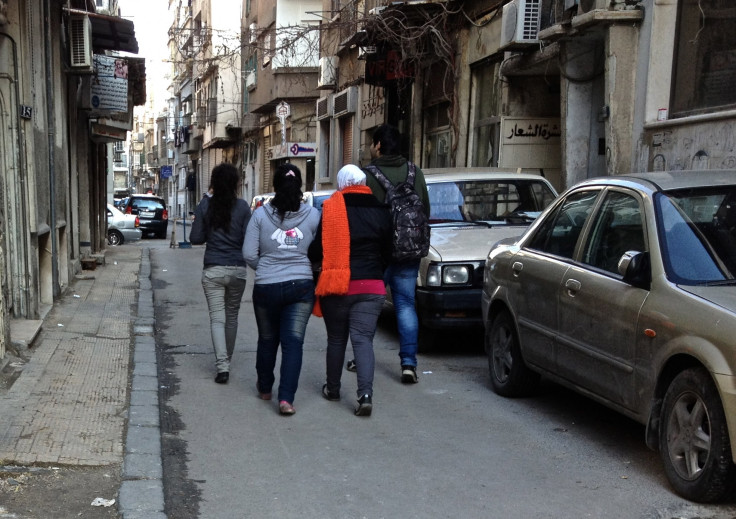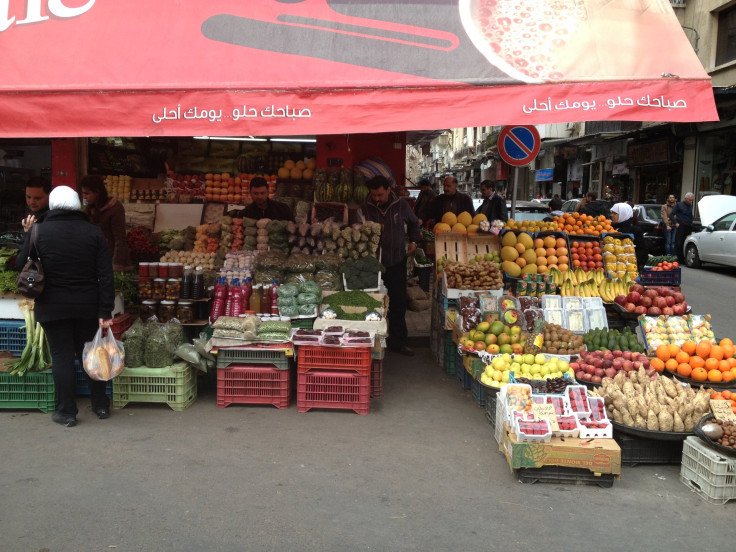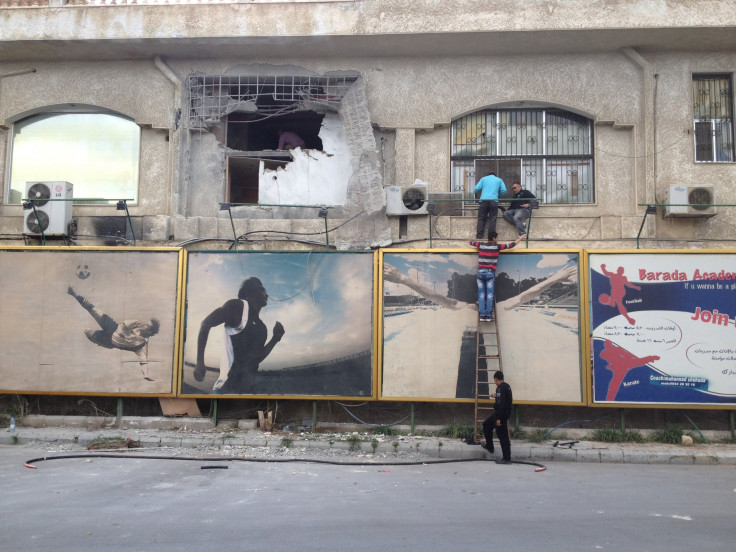Honey, Does This Civil War Make Me Look Fat?

DAMASCUS, Syria -- “Everyone has gained weight.”
That was the statement a friend made upon returning to Damascus for the first time since the country’s uprising-turned-civil war began almost two years ago.
She was right. Many in Damascus seem portly these days. But this is not a sign of well-being, rather a symptom of mass boredom and frustration. Almost two years into the uprising-turned-civil war, life in Damascus has become intolerable.
Clashes between rebels and regime forces have been inching ever closer to the city center, which has turned into something of a garrison town. Dozens of roadblocks and checkpoints strangle traffic, forcing cars to idle in labrynthine lines for searching and questioning. The general atmosphere of fear sends people scurrying home by dark, when streets turn eerily empty.
Damascus also cannot escape the buzzing of fighter jets above, and the thunderous sounds of shelling all around the city. On a bad day, the acrid stench of gunpowder stings the nose, and people complain of sinus pain and sore throats. At night, loud booms startle adults and children alike.
To make matters worse, central Damascus is now home to thousands of people who have been displaced by violence from elsewhere in the country. Almost every household in the Syrian capital is doubled or tripled up, hosting loved ones who fled their homes. Crowded quarters, regular power cuts, little work and little else to do are a perfect recipe for getting fat. And there is plenty of food to help make it happen.
Pricey Ghee
Damascus has been enduring fuel shortages, but for the most part food shortages have been at a minimum. Syria has long been agriculturally self-sustaining, and before the war it was a major exporter of barley and wheat.

During a recent casual stroll through Midan, a food market in downtown Damascus, baskets were filled with all sorts of fresh and local produce, including pomegranates, citrus fruits and strawberries. Though inflation has pushed up food prices, many middle-class households have hardly scaled back on their eating habits.
A case in point is Abu Sameer, who owns a shop in Midan selling Arab sweets.
“The price of ghee has gone up by more than half,” he said. Ghee is purified butter. It makes all foods cooked in it taste and feel richer.
“But what can I do? I have to buy it to make my baklava. Customers demand it. And at home, my wife can’t cook without it,” he said.
Extra Kilos For Everybody
In Damascus, even the most health-conscious are complaining about those few extra kilos. Like Yasser, a personal trainer who, last summer, was displaced out of his home in a restive Damascus suburb. He and his wife have since been splitting their time between his parents and hers, both of whom live in relatively calm central Damascus.
“Back home, I used to have a room just for training,” he said. “But now? I feel like a perpetual guest at my parents’ and in-laws’. I can’t just do my thing. Besides, there isn’t even any room for weights or anything!”

Yasser complains about his clients’ deteriorating health habits, too. He says those who did not use to smoke, now do. And those who rarely did, now chain-smoke.
“Even teenage girls picked up the habit, smoking shisha in front of their parents!” he said, referring incredulously to the traditional Arab pipe.
Yasser’s clientele has dwindled in number, part of the mass exodus of thousands of Damascenes who fled abroad.
Should I Stay or Should I Go
Yasser, who has the means to leave Syria if he so chose, has so far insisted on staying for a myriad of reasons, not least of which is principle.
“I don’t believe in abandoning my country at the first sound of a bullet,” he said. “Besides, I’ve invested so much training and nutrition education in myself, and I want to give back to my community.”
He and his wife also want to be near their elderly parents.
But now, he says, life has become truly unbearable, a sentiment echoed by so many Damascenes who have previously been patient, hoping for things to get better.
The commute to the gym where Yasser works has also become arduous.
Sometimes, the taxi ride takes 40 minutes when it should take ten. Sometimes, an impromptu checkpoint diverts traffic for an extra 20 minutes. Sometimes, no taxi driver is willing to take Yasser there. Sometimes, like a few weeks ago, a huge explosion goes off just around the corner from the gym, shattering glass and setting off car alarms, stranding people for hours afterwards as panicky, armed government security personnel forbid cars and pedestrians to move.
Canada, Lebanon Or The Emirates?
During a recent training session,Yasser’s iPhone kept interrupting with messages from his former clients, who are now dispersed all over the world, asking him to consider moving to where they live. One client in Abu Dhabi, United Arab Emirates, swears he could “secure a full-time, lucrative offer” from a local health club. Another one, in Canada, has already inquired on Yasser’s behalf about what it takes to apply for Canadian citizenship. More promises for a better life come from former clients now in Cairo, Beirut, and Amman.
“I never wanted to leave, but what’s left for me here?” Yasser said. “It’s not safe to return to my home in the suburbs. My wife and I are going crazy, feeling so displaced. I barely have any work left, and everything keeps getting more expensive. Besides my family, I have nothing left here.”
In a coffee shop in Beirut, Lebanon, where one Syrian now lives, a different sort of sentiment unfolded.
“Just because I’m not inside Syria doesn’t mean it’s not constantly on my mind,” said Hazem, 40. He then pointed to his potbelly. “All I do is watch the news and get very upset and end up eating and eating. I can’t escape it.”
© Copyright IBTimes 2024. All rights reserved.




















